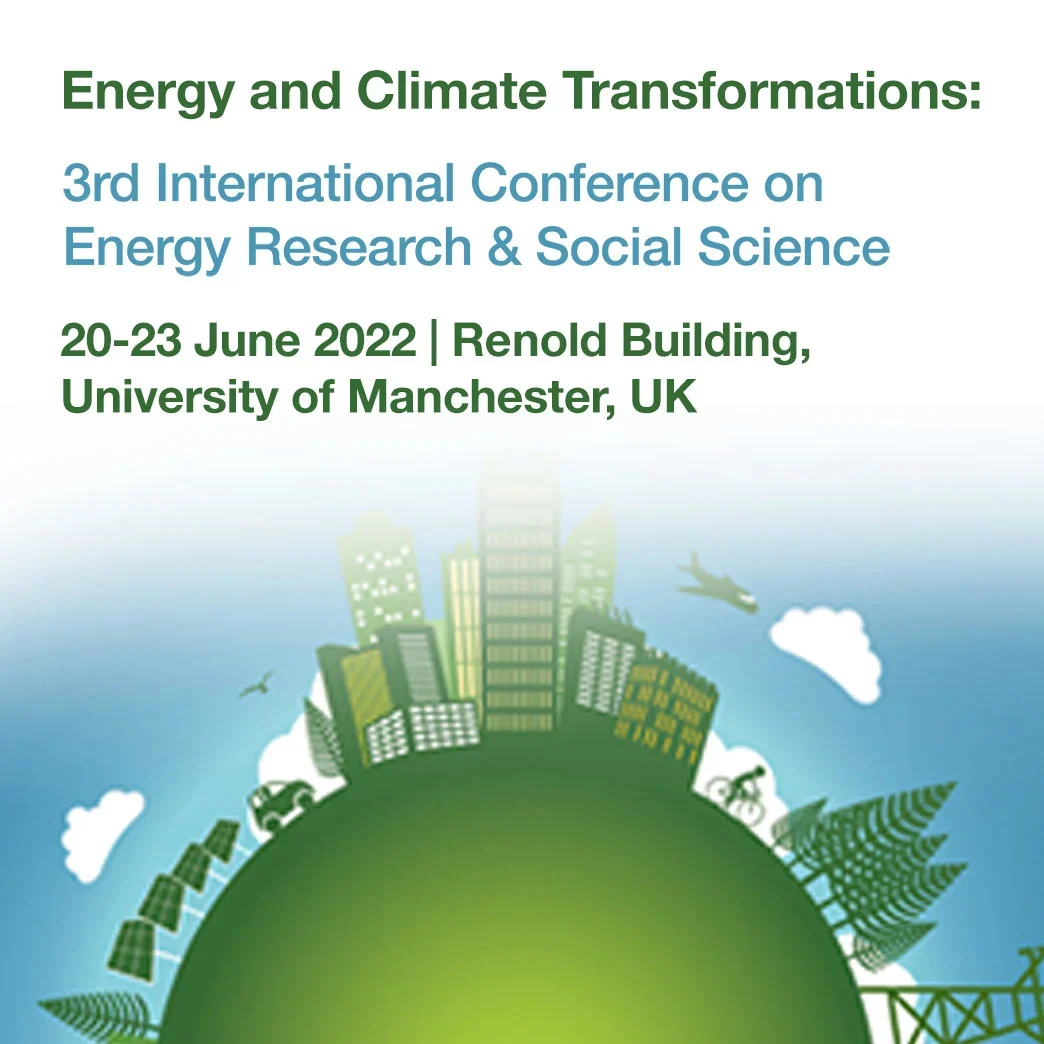Keynote and plenary talks from renowned speakers

The full programme includes:
Inspiring plenary talks from our Keynote Speakers
More than 40 concurrent oral sessions featuring nearly 200 talks
Unfortunately we don't fully support your browser. If you have the option to, please upgrade to a newer version or use Mozilla Firefox, Microsoft Edge, Google Chrome, or Safari 14 or newer. If you are unable to, and need support, please send us your feedback.
We'd appreciate your feedback.Tell us what you think!
20-23 June 2022 Renold Building, University of Manchester, UK

The International Conference on Energy Research and Social Science is the premier global forum for exploring the nexus of energy and society.
The conference will highlight and explore the grand societal challenges arising at the interface of global energy transformations on the one hand, and ongoing climate mitigation and adaptation efforts on the other. It will offer a vibrant and innovative forum for presenting and discussing cutting edge research on the movement towards a low carbon future as it relates to reconfigurations in energy policies, infrastructural landscapes, socio-technical systems, and social practices.
We welcome interdisciplinary contributions from across the social sciences, environmental studies, humanities, and energy research.
3rd International Conference on Energy Research & Social Science Special Issue
There are no plans for a 3rd International Conference on Energy Research & Social Science Special Issue. Authors are encouraged to submit their research to conference supporting publications in the normal way.

The full programme includes:
Inspiring plenary talks from our Keynote Speakers
More than 40 concurrent oral sessions featuring nearly 200 talks

Choose from a variety of sponsorship and commercial options to raise your profile and position your company as a thought leader in the community.